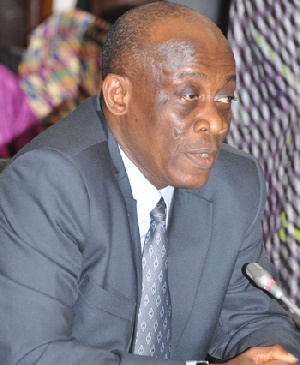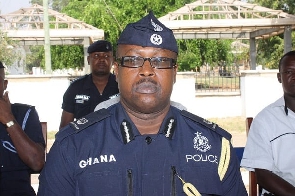Finance Minister Seth Terkper says African leaders need a collective effort to address the incident of exploitation of natural resource rich nations by multinational companies.
The Minister, who was speaking at the launch of the third Africa Capacity Indicators publication by the African Capacity Building Foundation (ACBF), said “misuse and exploitation of natural resources could be tackled through collaborative efforts of academia and civil society partnerships.”
“Africa needs enhanced political systems that are responsive to the growth of the continent. Africa’s enormous challenges are as a result of human and institutional capacity challenges, weak governance systems and absence of peer review among countries,” he said. Dr. Frannie Lautier, Executive Secretary, ACBF, who gave the overview of the report, said Africa currently lacks the human capacity to manage natural resources.
She said the activities of some multinational companies (MNCs) “destroy the environment, take over lands and render local communities impoverished due to lack of supervision by government, absence of strategic plans or effective policies to hold MNCs to their terms of contract, and corruption.”
The report, which focuses on Capacity Development for Natural Resource Management, is the third publication in the ACBF’s Africa Capacity Indicators series. It debunks the so-called resource phenomenon and points to success stories from Botswana, Liberia, Sierra Leone, Mozambique, Ghana, Ethiopia and other countries to conclude that with proper management, natural resource wealth can promote development advances in African countries.
The book, with a foreword by Dr. Nkosazana DiaminiZuma, Chairperson of the African Union Commission, draws on lessons learned from those success stories to provide policy recommendations and guidelines for maximising the positive impact of natural resource wealth on Africa’s prospects to achieve sustainable, long-term development.
Launched in 2011 to mark the ACBF’s 20th anniversary, the Africa Capacity Indicators (ACI) series each year addresses one aspect of capacity-building and economic development within the African context. The first volume, Capacity Development in Fragile States, was followed in 2012 by Capacity Development for Agricultural Transformation and Food Security.
The 2013 ACI report ranked Ghana 3rd out of 45 countries in Africa in its strategy for managing natural resources. The report aggregates weights of countries’ general strategy for managing natural resources, capacity to develop policies for use of those resources, achievement of developmental results, and amongst others, investment in the dynamic capability needed of the nation.
ABCF Executive Secretary Dr. Frannie Leautier, speaking to the B&FT, attributed Ghana’s ranking to its policy-implementation capacity and the ability to generate results.
“Ghana is making strides on the implementation front and also in the push to get development results. But work still needs to go into building dynamic capacity because this is a fast moving field where scientific knowledge and other elements are needed.” Naa Professor John S. Nabila, President, National House of Chiefs/Member of Council of State, launching the report said African leaders need to seriously seek ways to address emerging challenge.
Prof Nabila said Africa needs to enhance its capacity, harness knowledge assets and encourage creative solutions in order to move the continent from the production of raw materials to industrialization.
ACBF, sponsored by African Development Bank, United Nations Development Programme and World Bank, launched the annual Africa Capacity Indicators Report series to further its goal of building sustainable, effective institutions and policies to deliver development results for poverty reduction.
These flagship publications draw on a combination of ACBF’s two decades of work and the results of Africa Capacity Indicators field surveys completed each year to advance the international community’s knowledge of the particular challenges and constraints Africa faces in pursuit of further development progress. ACBF is headquartered in Harare, Zimbabwe.
Business News of Tuesday, 26 March 2013
Source: B&FT

















